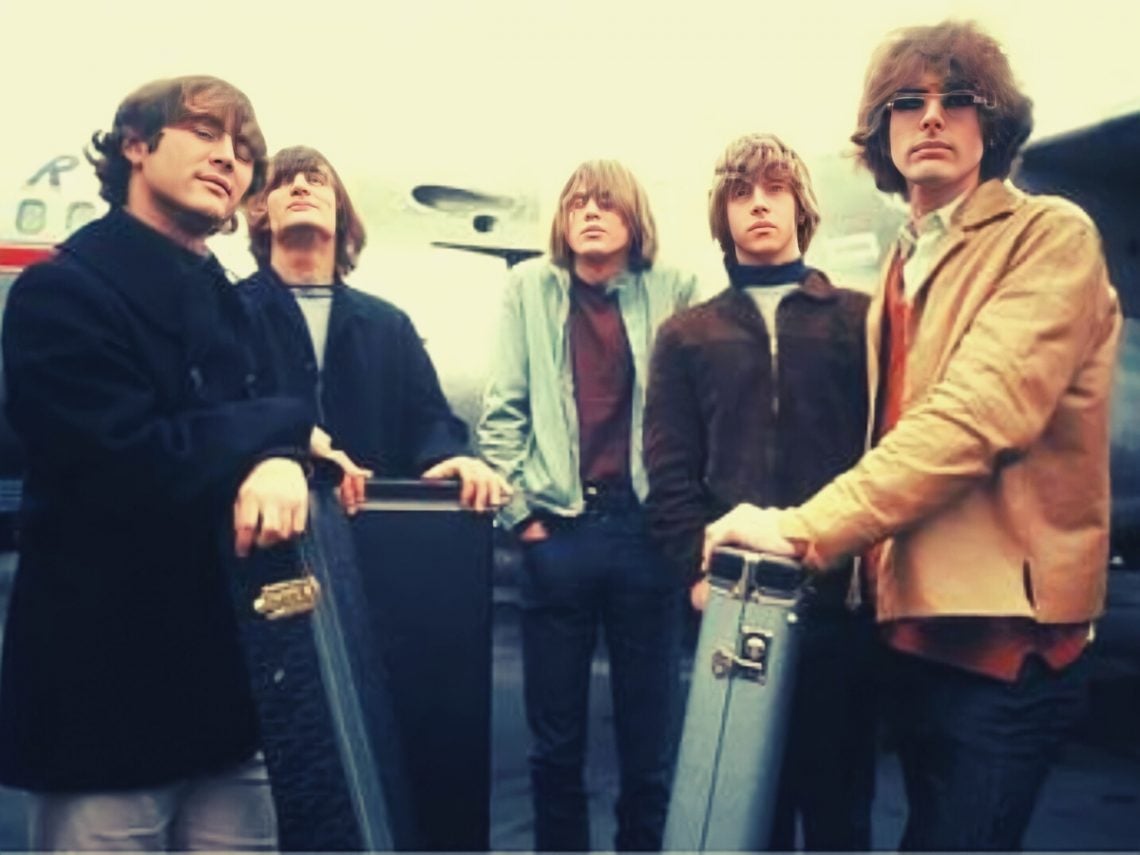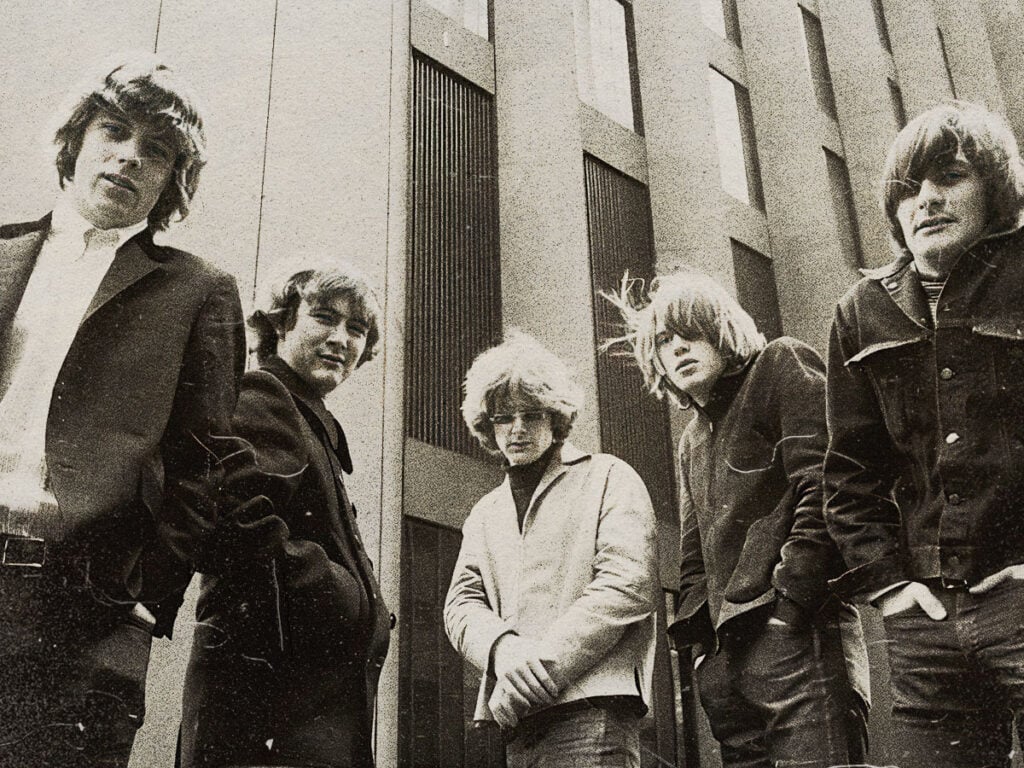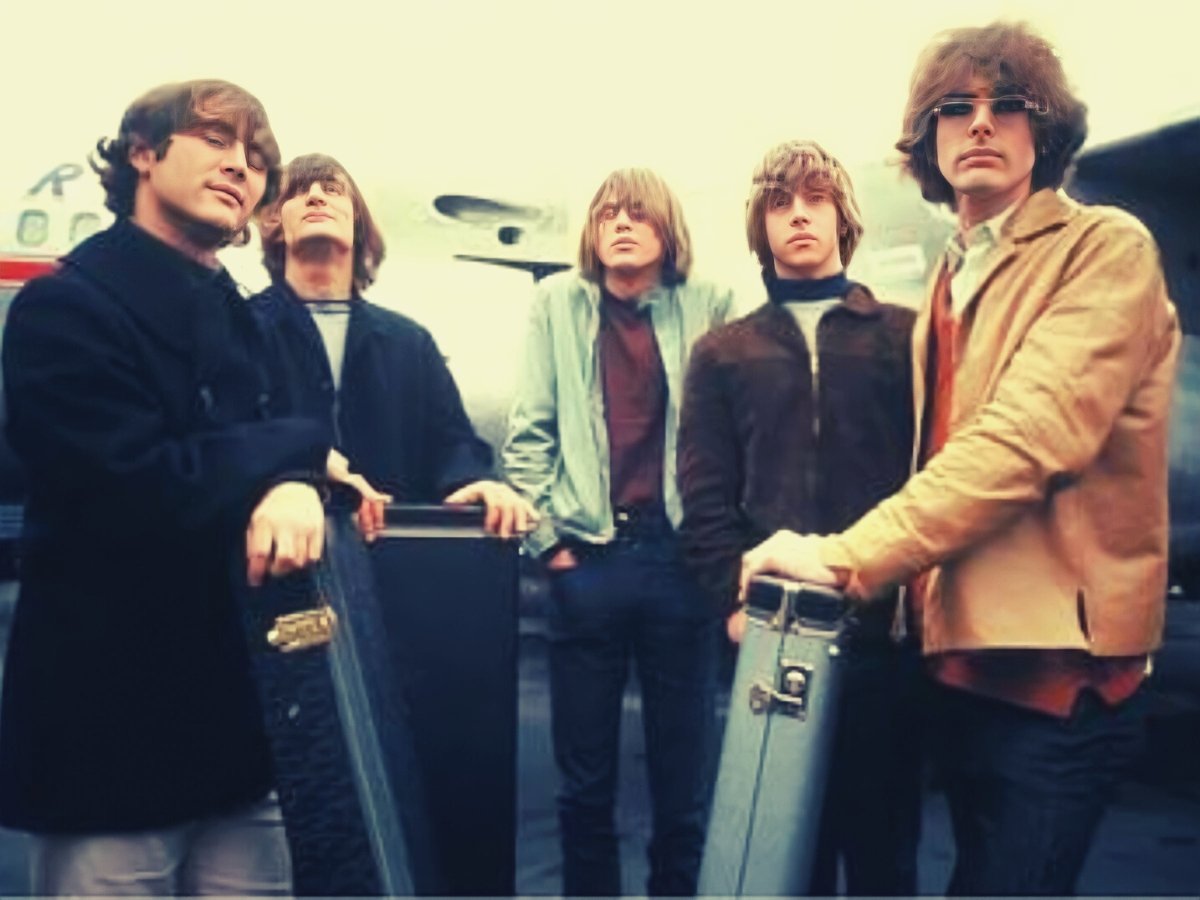
(Credit: The Byrds)
Fri 14 November 2025 11:06, UK
It was likely the dream of David Crosby, Roger McGuinn and all the other members of The Byrds growing up to be bathed in the spotlight and adored by audiences. To become a leading musician, one would imagine this dream is a prerequisite.
In fact, if you were to ask the majority of people if they wanted to be in a successful rock band, they would more than likely bite your hand off at the opportunity. The idea of living a life dedicated to playing music, making loads of money and being adored by people worldwide is an alluring prospect, but there are huge pitfalls that come with the lifestyle, too.
Jealousy, creative tension and substance abuse have played a pivotal role in the downfall of several bands, one of which was The Byrds, who had an encounter with Paul Simon that marked the beginning of the end.
It’s worth noting that tension in The Byrds was already building, and the band’s line-up as it stood with David Crosby, whether the band were conscious of it or not at the time, had a limited lifespan attached. Band-splitting tension often comes at a steady pace and grates away at the rock ‘n’ roll infrastructure over time, meaning it’s tough for people to recognise just how finite an ongoing relationship is until there is a trigger point.
This was the case with The Byrds, and it took just one wry comment towards Paul Simon to highlight how fragile the band dynamic had become. One day, when he popped into the studio, he was invited to The Byrds gig that night, and chaos ensued.
 The Byrds in the 1960s. (Credits: Far Out / Tidal)How did Paul Simon break up The Byrds?
The Byrds in the 1960s. (Credits: Far Out / Tidal)How did Paul Simon break up The Byrds?
“We were up at the Columbia offices when Paul Simon came in,” said Roger McGuinn of the band, “I had worked with Paul when I was a session musician in New York, and I played on his demo of ‘The Sound of Silence.’ But I didn’t remember that at the time. David [Crosby] said to Paul, ‘Hey, man, we’re playing tonight, you should come down.’ Paul said, ‘Well, I don’t know. Maybe I’ll go.’ I was kind of cranky, and I said something like, ‘Well, you don’t have to go to the gig, man.’ Paul said, ‘I know I don’t have to.’”
It seems like a harmless enough exchange, but when you grow tired of someone, it’s easy to get irritated by the smallest things. Pair that with the pressure that comes with being a rockstar and the fact that Simon and Garfunkel were one of the biggest acts in the world at the time, and that was enough for Crosby to get mad.
Chris Hillman recalls, “David thought Roger was not being polite to Paul Simon. I don’t know what happened, but Paul leaves. It wasn’t in a huff or anything. Then David says, ‘I can’t believe you treated Paul Simon like that.’”
For those of you who have a working knowledge of CRosby, this feels a little off. Not that he wouldn’t defend Paul Simon, but that he should be mad about offending anyone. Crosby was notorious for falling out with just about every member of the musical community, finding enemies in friends and breaking enough ties to assume he might have had the thickest neck in the world. But he seemingly lost his cool.
McGuinn continues, “David got mad. He said, ‘Are you so jealous of Simon and Garfunkel that you’re acting like that?’ We just got into it with each other. And then David said, ‘Milbrook’s off!’ Timothy Leary had a sort of acid commune in north upstate New York, in a town called Millbrook. We were going to go there, but David was the liaison between Leary and us. I just remember him saying, ‘Millbrook’s off.’ So, we didn’t get along for a while after that.”
Would they have split up anyway?
What feels like an incredibly blasé comment towards Paul Simon ended up being enough to start a huge argument throughout the band. But would the group have imploded in their current iteration at some point anyway? Yes, most likely. When such a trivial comment can lead to such an almighty bust-up, you can be safe in the knowledge that the explosion was going to happen no matter what.
The wound-up nature of The Byrds at the time is represented in how easy it was to drive a wedge between the band. This is a moment that even Crosby refers to as the beginning of the end, and is a common pitfall for bands who suddenly find themselves thrust into the spotlight.
The Byrds were just one of many bands who imploded following success, such is the weight of fame andf fortune on the heads of such young people.
Related Topics

